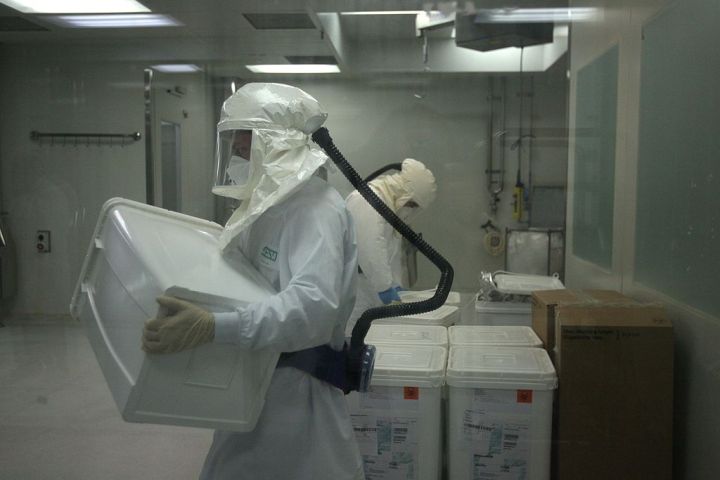
Drug shortages are getting worse. Ongoing shortages are affecting more than 300 drugs, a near-record high, according to the most recent data from the University of Utah Drug Information Service. And these aren’t new, expensive or specialized drugs America is running low on — most are older, cheaper, generic medicines.
What happened? “Market failures … across the supply chain,” U.S. Sen. Ron Wyden said during a Finance Committee hearing Tuesday. The Oregon Democrat is one of many lawmakers pointing the finger at pharmacy benefit managers, the middlemen who negotiate drug prices on behalf of insurers. PBMs have driven “a race-to-the-bottom price war” for generics, Wyden said. Sen. Mike Crapo, a Republican from Idaho, said many generic drugmakers operate on such tiny margins now that only a few companies are even willing to make them.
In pursuit of low production costs, generic quality has also come into question. Drug recalls tied to quality doubled from 2018 to 2022, Bloomberg reported. Concerns over quality are so great that the Department of Defense even hired an independent lab to test the generics available to military personnel and their families. It found about 10% of drugs tested had problems, like lacking an active ingredient or containing a harmful one.
Shortages are “largely avoidable,” an economist told lawmakers this week, as many potential solutions are within the government’s ability to take action. New regulations could allow drug buyers to consider resilience and quality, not just price, which would incentivize manufacturers to produce more consistent, quality products. Senators have also introduced several bills this year to limit how PBMs can set drug prices and increase transparency. CVS Health, the largest drugstore chain, however, isn’t waiting for new regulations. It announced this week that it plans to align the price its retail pharmacies charge for a prescription with the amount the chain pays for drugs.
Smart in a shot

Each month, our “Econ Extra Credit” newsletter picks a book, movie or TV show to watch together and explore the economic themes. This holiday season, we’ve selected “Trading Places.”
The 1983 comedy stars Eddie Murphy and Dan Aykroyd as a poor beggar and snobby commodities trader, respectively, who are manipulated by two wealthy brothers into swapping economic circumstances. Madcap role-reversal has been part of Christmas celebrations for centuries, but this particular “nature vs. nurture” experiment ends with the pair joining forces to get their revenge.
That scheme involves frozen orange juice futures, and plenty of folks have already done a great job explaining how it would work in the real world. Instead, we’re spending this month digging into the social science around class and other real-life examples of “trading places” in history.
New issues of “Econ Extra Credit” go out every Monday — subscribe today so you don’t miss the next issue. Don’t want to wait? We highly suggest digging into our archives for last December’s pick, “It’s a Wonderful Life.”
The numbers
It’s been more than four years since Purdue Pharma, the maker of OxyContin, filed for bankruptcy. Yet the settlement for victims of the opioid epidemic, and their families, remains in limbo. Now the Supreme Court must decide how to move forward. Let’s do the numbers.
Chapter 11
That’s the section of the bankruptcy code that allows companies to stay in business and reorganize rather than completely fold. It is also commonly used to limit companies’ liability in consumer lawsuits. Purdue Pharma filed for Chapter 11 bankruptcy in 2019 as it faced thousands of lawsuits over its role in the opioid epidemic.
$6 billion
As part of the bankruptcy settlement, members of the Sackler family, who controlled Purdue, agreed to pay $6 billion of their own cash toward proposed settlements, but only if they received immunity from any current or future lawsuits tied to OxyContin. The Sacklers secured this exemption even though they did not file for bankruptcy themselves.
96%
That is the percentage of plaintiffs who voted in favor of the bankruptcy settlement. But the thousands who rejected the deal also cannot sue the Sacklers. Whether the law allows for these types of releases was the central issue debated in oral arguments before the Supreme Court this week.
$3,500 to $48,000
That’s how much plaintiffs stand to receive in compensation should the bankruptcy settlement move forward.
100,000
Overdoses tied to opioids continue to kill 100,000 people each year.
None of us is as smart as all of us
More bad news about plastic recycling: We’ve been interested in this one for a while, which is why Kimberly Adams read with great interest this week that a national database for plastic bag recycling went offline after an ABC News investigation found most of those bags ended up in landfills.
What counts as a “hate crime”: There’s no one answer, producer Dylan Miettinen learned from this Marshall Project story. A hodgepodge of state laws, protected class distinctions and prosecutorial discretion means what might on their face seem like hate crimes are difficult, if not impossible, to prosecute and track.
Craigslist is kinda over … And Buy Nothing has spent much of this year hobbled by infighting. Where’s a thrifty shopper (or savvy seller) supposed to turn? “This Is Uncomfortable” producer Alice Wilder put us on to this great guide to Facebook Marketplace from Dwell.
There’s a lot happening in the world. Through it all, Marketplace is here for you.
You rely on Marketplace to break down the world’s events and tell you how it affects you in a fact-based, approachable way. We rely on your financial support to keep making that possible.
Your donation today powers the independent journalism that you rely on. For just $5/month, you can help sustain Marketplace so we can keep reporting on the things that matter to you.

















